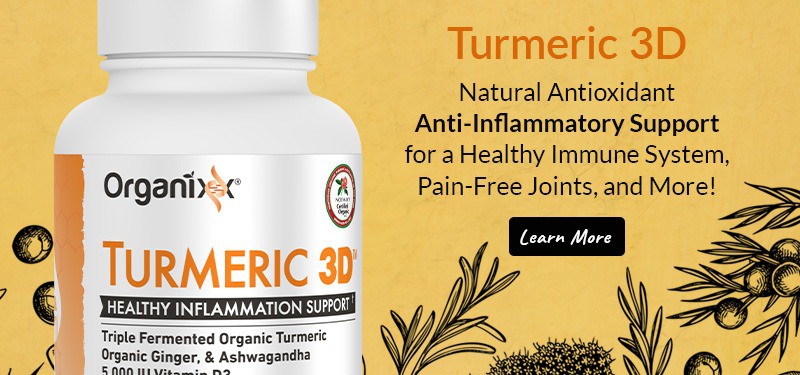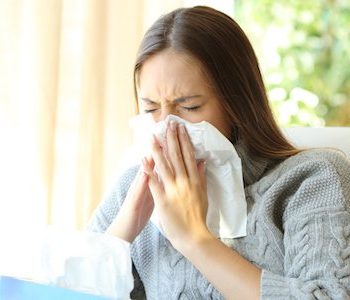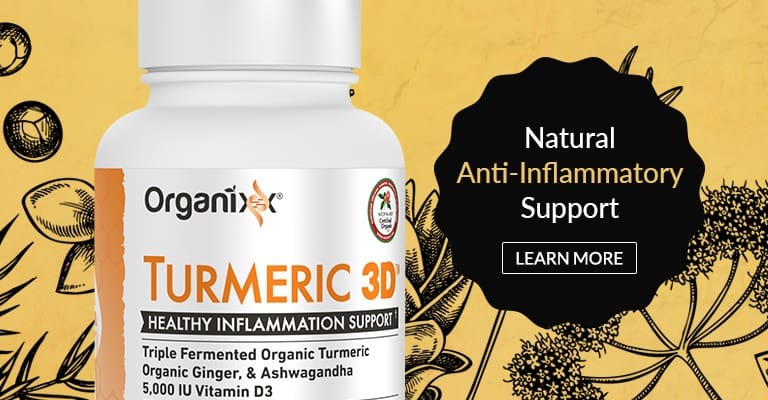Video Transcript:
Today’s Ask Dr. Melissa question comes from Darcy. Darcy asks, “What can I do about blood clots in my lungs?”
Pulmonary Embolism
So, Darcy, this is often known as a pulmonary embolism [1]. And I’ve actually worked with a lot of patients who have pulmonary embolism – or embolisms because usually there’s multiple clots – for an assortment of reasons. Sometimes it’s post-surgical, or after an accident, or after a virus, or a situation where a blood clot moves from another part of the body.
Most notably, I’ve worked with Serena Williams [2] in the early 2010s, when she had her own pulmonary embolism, the first of a few. And so I want to share with you what I’ve shared with her that you might find helpful.
First of all, if you’re aware of a pulmonary embolism, you should be under the care of a pulmonologist and a cardiologist. And often they’re going to be prescribing medication, that is to help break up the clots or thin your blood. This is really important to know, that some medication may be prohibitive of certain herbs and certain natural supplements that I ordinarily recommend.
Test Your Vitamin K Levels
But I can tell you one really important lab value to have tested, actually two lab values, but one is going to be a nutrient, a micronutrient that we call vitamin K.
Understanding where are your vitamin K levels will help you understand if you have low K, then you might be at risk for greater clotting. When we have low vitamin K levels, we have low clotting factor in the blood.
And vitamin K is often given to kids, infants early on, because it helps with the clotting mechanisms. There can be influences that lower your vitamin K levels [3]. Maybe you’re not eating enough food, vitamin K-based foods, maybe there might be medication that’s lowering that level.
Genetic Testing for Clotting Factors
And then another factor that you can test for is genetic kind of testing, to identify your clotting factors, or if you have any type of genetic history or predisposition that leads you to having a blood clotting disorder. Which is really common, and most people aren’t aware of it until unfortunately they have a blood clot that pops up, thrombosis or pulmonary embolism.
Compression Therapy Helps Lower Blood Clot Risk
Now, the second thing that I recommend is actually using compression socks and compression therapy to be more preventive in lowering the risk of more blood clots forming, and then traveling up into the lungs and possibly to the heart. It’s not uncommon, also, that you might have a surgery where they put in a little cage, if you will, that helps prevent a blood clot from getting into your heart, which can be often fatal.
Turmeric & Ginger As Natural Blood Thinners
And the third recommendation here is to look at natural foods that might thin your blood gently, but also being aware that if you are on blood thinners, which is going to be common for blood clots in the lungs, that these might be contraindicated and counterproductive to that medication. But generally, natural blood thinners are going to look like herbs that we know as ginger and turmeric.
Our T3D has the fermented form of turmeric that I love to recommend for a lot of folks that might be trying to be preventive, or maybe they’re looking to lower their blood clot risk, or may have some mild blood clotting, or thrombosis, or even fibrin density in their blood. This can be noted in CDC labs, and folks might be diagnosed with thicker blood. That can be quite helpful.
Consult With Your Doctor to Prevent Contraindications
But again, be very cognizant of the medication you’re taking. You don’t want to thin your blood too much, that can be a risk factor. But also know that over time and dedication and monitoring, that these are less of a risk when they… unfortunately, when many go unchecked.
Make sure, if you aren’t being monitored by a medical team, that you do so and that you routinely check-in. And we’ve seen many cases resolve in three to six months. But definitely check your genetics, because that can tell you if you need to consume ginger and turmeric on the daily after this resolves to help with the blood clotting.
And often, blood clots, depending on the type and the form, can be related to fibrin density in your bloodstream, so making sure you are enhancing your vitamin K intake. And also consuming proteolytic enzymes, like serrapeptase and nattokinase, can be really helpful in breaking up those dense fibrins that are clotting in their activity.
I hope that’s helpful, Darcy. And any of you folks out there who might have other pulmonary or cardiovascular questions, feel free to ask here, and I will answer in future Ask The Doctor replies.
Turmeric 3D from Organixx provides you one of the most “bioavailable” forms of turmeric due to its unique fermentation process. This means your body experiences the maximum benefits of the purest, most potent turmeric available!

Is turmeric good for a woman’s health? At this point, it’s arguably one of the most-studied botanicals on the planet. What over 13,000 studies on turmeric and curcumin indicate is that this food/supplement has an astonishing array of health benefits that are especially favorable for women. If you’ve never thought about turmeric for women’s health… read on to discover 10 of the most exciting curcumin/turmeric benefits for women.
Note: Turmeric is the popular name for the rhizome of the Curcumae longa plant. Curcumin is one of the active ingredients (compounds) found in turmeric.
#1. Curcumin Helps Protect Against Breast Cancer
Breast cancer is the number two killer of women in the U.S., second only to heart disease. Curcumin has been found in many studies to have chemopreventive action, which means that it is able to interfere with the cancer process.
Chemopreventive nutrients are generally broken down into three distinct sub-groups:
- anti-proliferants (stopping the rapid growth of cancer cells)
- antioxidants (combing the body for free radicals), and/or
- carcinogen (cancer-causing) blockers
Curcumin sits in all three sub-groups [1]. In other words, it works against cancer in all three ways!
Curcumin promotes cellular death receptors [2,3], which are receptors sitting on the surface of cells that transmit the “die” message to cancer cells. Curcumin also has significant anti-inflammatory properties [4-8], which is important because cancer is known to be an inflammatory process.
Another way curcumin helps fight breast cancer is through apoptosis in breast cancer cells [9-13]. Apoptosis is programmed cell death, which is a process absent in cancer cells. Curcumin also helps inhibit the HER-2 oncogene which can make this type of breast cancer more aggressive [14].
Curcumin has also been found to inhibit the growth of new blood vessels which tumors use to feed themselves; a process known as angiogenesis [15,16]. It also inhibits the rapid growth and division of cancer cells [17-20] and activates key enzymes which act to destroy cancer cells from within [21,22].
And, should you already have cancer and be taking chemotherapy and/or radiation treatment, curcumin has been shown to increase the sensitivity of tumor cells to these therapies while protecting healthy tissues from the harmful effects of those treatments [23-25].
It’s important to note that none of this is to say that turmeric/curcumin supplementation is a stand-alone treatment or cure for cancer. But it may be worth discussing with your healthcare provider if it would be beneficial as a complementary therapy.
#2. Curcumin Helps With Reduced Inflammation

Inflammation is the product of a complex series of biological responses triggered by the immune system. It is a life-saving response to outside threats, so vital for our health.
However, when inflammation becomes chronic, it can create a firestorm of problems. Chronic inflammation is caused by a myriad of factors and lies at the root of many chronic diseases, including (but not limited to):
- Cancer
- Cardiovascular disease
- Rheumatoid arthritis
- Allergies and asthma
- Diabetes
- Inflammatory bowel disease
- Atherosclerosis
- Neurological problems (including Alzheimer’s disease)
- Heart disease
Over 100 clinical trials indicate that curcumin powerfully targets numerous inflammatory pathways in the body yielding reduced inflammation. Even more impressively, curcumin has been shown in some studies to match the effectiveness of many anti-inflammatory drugs… without the side effects [26-28].
#3. Curcumin Helps Decrease Risk of Heart Disease
More women die of heart disease than any other health condition. Again, chronic inflammation is at the root of the problem, although other factors such as diet and stress levels play a role in the development of heart disease.
According to Chinese research published in the journal Molecules [29], curcumin suppresses numerous pro-inflammatory pathways in the body, is a potent antioxidant and free radical scavenger, reduces cholesterol, and guards against cardiac hypertrophy (enlarged heart) and fibrosis.
These antioxidative and anti-inflammatory benefits combined equate to improved cardiovascular health.
#4. Curcumin Helps Protect Against Neurodegenerative Diseases

Brain health is an important concern for women, who are being afflicted with Alzheimer’s disease at far higher rates than men. It is estimated that by 2030, one in five people over the age of 65 will be diagnosed with a neurodegenerative disease.
The research suggests that an overabundance of free radicals and oxidative stress, the formation of beta-amyloid plaques, and cerebral deregulation caused by heavy metal toxicity and chronic inflammation all contribute to neurodegenerative diseases such as Alzheimer’s disease.
In studies, curcumin has been shown to decrease beta-amyloid plaques, delay the degradation of neurons (brain cells) in the brain, and protect brain cells.
Curcumin also chelates (latches onto) the heavy metals that are doing such damage, decreases inflammation, neutralizes free radicals, and decreases the formation of microglia (dysfunctional microglia are a prominent feature of Alzheimer’s). Curcumin has also been shown to be beneficial for other nerve-related disorders such as Huntington’s and Parkinson’s disease [30,31].
As an added bonus, curcumin helps guard against declining cognitive function. A 2016 clinical trial [32] comprising older adults found that daily consumption for six months of a curcumin product protected the curcumin group from declining cognitive function – an outcome not enjoyed by the placebo group.
#5. Curcumin Helps Prevent Type 2 Diabetes
The U.S. Centers for Disease Control and Prevention (CDC) recently released a report stating that 30.3 million Americans (9.4% of the U.S. population), had type 2 diabetes as of 2015. Another 84.1 million had prediabetes, a condition that, if left untreated, can lead to the development of type 2 diabetes within five years [33].
Type 2 diabetes is a chronic condition that in turn leads to long-term complications such as heart, liver, and kidney disease. An abundance of studies has revealed the critical role of inflammation and oxidative stress in the development of type 2 diabetes.
Curcumin has been shown to lower blood sugar in people with diabetes and inhibit key enzymes linked with type 2 diabetes. Further, curcumin is known to inhibit a number of inflammatory pathways [34] and has the ability to slow the progression of diabetic retinopathy (damage to the blood vessels of the eyes), which is a common complication of type 2 diabetes [35].
#6. Curcumin May Aid in Weight Loss

As women approach middle age, many find it more challenging to maintain a healthy weight. A 2013 study done at the School of Medicine and Biomedical Sciences, State University of New York at Buffalo, found that curcumin just may assist with the obesity epidemic we’re currently facing.
The study explained that obesity is characterized by chronic low-grade metabolic inflammation. Because curcumin acts directly on key inflammatory factors, it appears to decrease the rapid growth of fat cells! Researchers stated that “curcumin directly interacts with white adipose tissue to suppress chronic inflammation [36].”
Curcumin has been shown in animal studies to increase metabolism, improve insulin resistance, and lower cholesterol levels [37] – all factors that help in the “battle of the bulge.”
#7. Curcumin Helps Promote Mental Health
Depression is prevalent in menopausal women but also afflicts many younger women. Because curcumin has some interesting and beneficial effects on the nervous system, it has been recently studied for its effects on depression.
One 2017 review of medical research found that curcumin “appears to be safe, well-tolerated, and efficacious among depressed patients [38].” Here’s why…
Already noted are the anti-inflammatory and antioxidant properties of curcumin. For the nervous system, these two aspects of curcumin make it a special nutrient.
Curcumin turns on genes that produce antioxidants that scour for free radicals and limit their damage. It also supports the synthesis of glutathione, a potent antioxidant and neuroprotective agent in the brain.
As discussed above, curcumin inhibits inflammatory enzymes. This is helpful in depression because inflammation leads to changes in the ability of the brain to regulate important hormones, including adrenal, sex, and thyroid hormones.
Inflammation also reduces the production of important neurotransmitters in the brain such as serotonin. Chronic inflammation also induces changes in the plasticity (the ability to make new neural pathways) of the brain.
Curcumin tackles all of these problems that contribute to depression [39].
#8. Curcumin May Help Endometriosis Pain

Endometriosis is an inflammatory condition that affects an estimated 1 in 10 women of reproductive age (approximately 176 million women worldwide). It is an often painful condition where tissue that normally lines the inside of the uterus starts growing in other parts of the body such as the ovaries, fallopian tubes, and pelvis.
If left untreated, endometriosis can result in infertility.
A 2013 cell study [40] found that curcumin had beneficial effects on endometrial cells, noting that the hormone estradiol is an important promoter of endometrial growth. Researchers stated that curcumin suppressed the proliferation (rapid growth) of endometrial cells by reducing estradiol levels.
A 2018 review [41] of medical studies on curcumin and endometriosis found that in both test tube and animal studies, curcumin reduced the pain and inflammation of endometriosis. Further, curcumin inhibited the invasion, attachment, and new blood vessel growth of endometrial lesions, all of which had the combined effect of inhibiting the progression of the disease. Researchers stated that clinical trials would be necessary to ultimately prove its benefits for humans
#9. Curcumin Is a Blood Purifier and Natural Detoxifying Agent
A real concern of modern-day living is from the toxins found in our air, food, and water. One word for toxins is “xenobiotics,” which essentially means a chemical found in the body that isn’t supposed to be there.
Xenobiotics are often harmful chemicals associated with increased inflammation and a higher risk of cancer. The liver, as it filters the blood, plays a major role in the detoxification and excretion of xenobiotics and other potentially dangerous substances.
According to research published in the journal Plant Foods for Human Nutrition [42] back in 1993, turmeric assists the liver in detoxifying xenobiotics, helps to ease some of the effects of these substances, and protects the cells of the liver.
A 2013 clinical trial [43] also found that turmeric extracts acted as a blood purifier, aiding the health of the liver. Fermented turmeric powder was given to study participants with elevated liver enzymes for 12 weeks. At the conclusion of the trial it was found that for those taking the turmeric, liver enzymes were significantly reduced.
#10. Curcumin Helps Protect Against Colds and Flu

Because curcumin is a powerful antioxidant and helps fight the formation of free radicals, it also supports the body against colds and flu.
An abundance of free radicals destroys healthy cells, which makes us more prone to catching seasonal colds and flu. Studies consistently show that curcumin stimulates the immune system and helps the body fight off colds and flu; especially the drug-resistant strains of flu [44].
A 2018 study [45] found that curcumin has the ability to directly inactivate influenza A virus and inhibit associated influenzal pneumonia, making it an important anti-viral substance.
An Important Note About Curcumin Absorption
An often-asked question is “Can I just eat turmeric root to get the good benefits of curcumin?”
While there is no doubt that using turmeric spice in your cooking has great health benefits (and is tasty to boot!), even taking a high dose of curcumin does not guarantee it will be absorbed by the body. While many supplement brands use black pepper to increase the bioavailability of curcumin, there are some downsides to combining turmeric and black pepper.
Another important consideration is that tumeric has blood-thinning properties which can impact blood clotting and increase the risk of bleeding and bruising. Always consult with a trusted healthcare practitioner to determine if a supplement is right for you.
Turmeric 3D from Organixx provides you one of the most “bioavailable” forms of turmeric due to its unique fermentation process. This means your body experiences the maximum benefits of the purest, most potent turmeric available!




